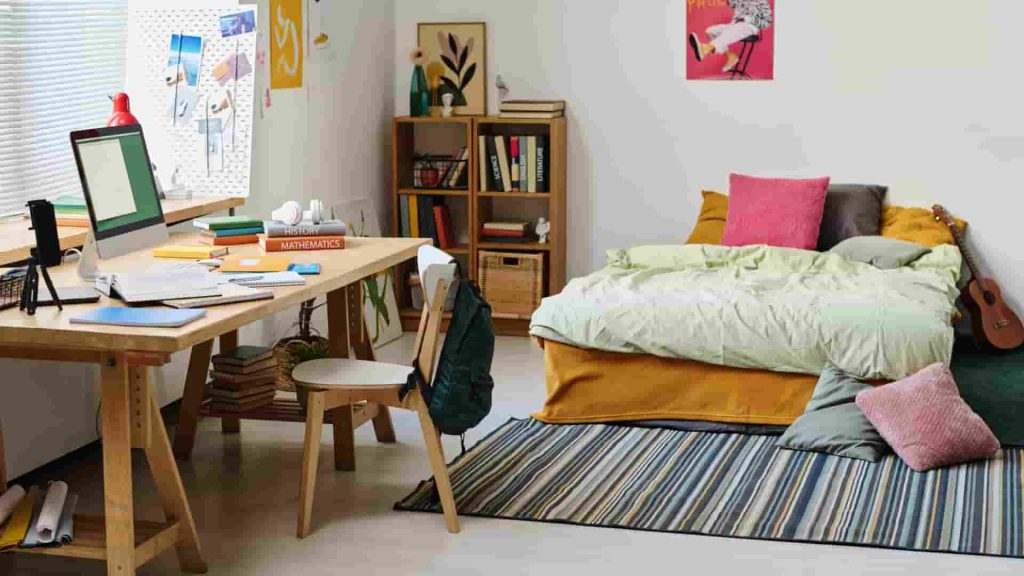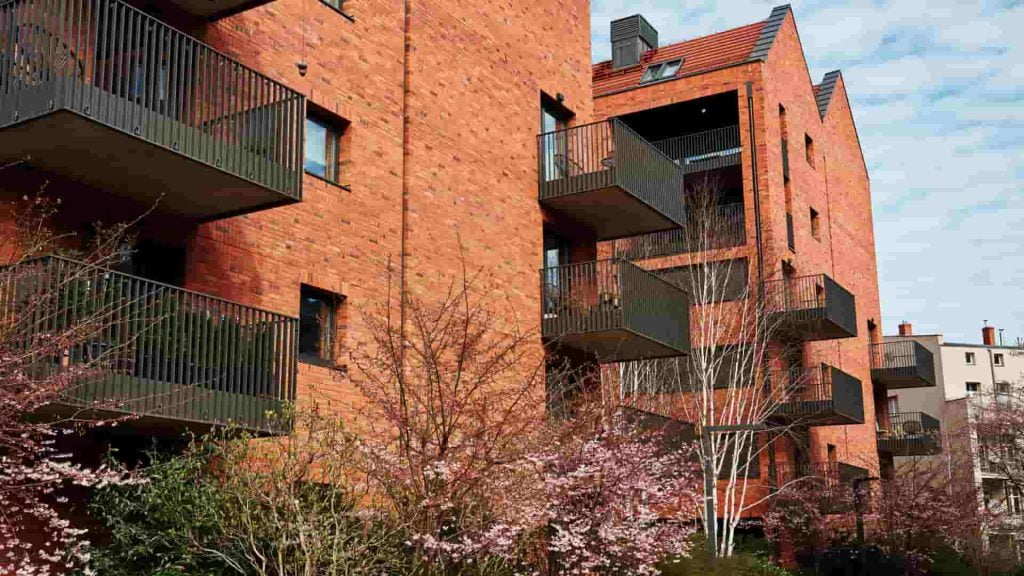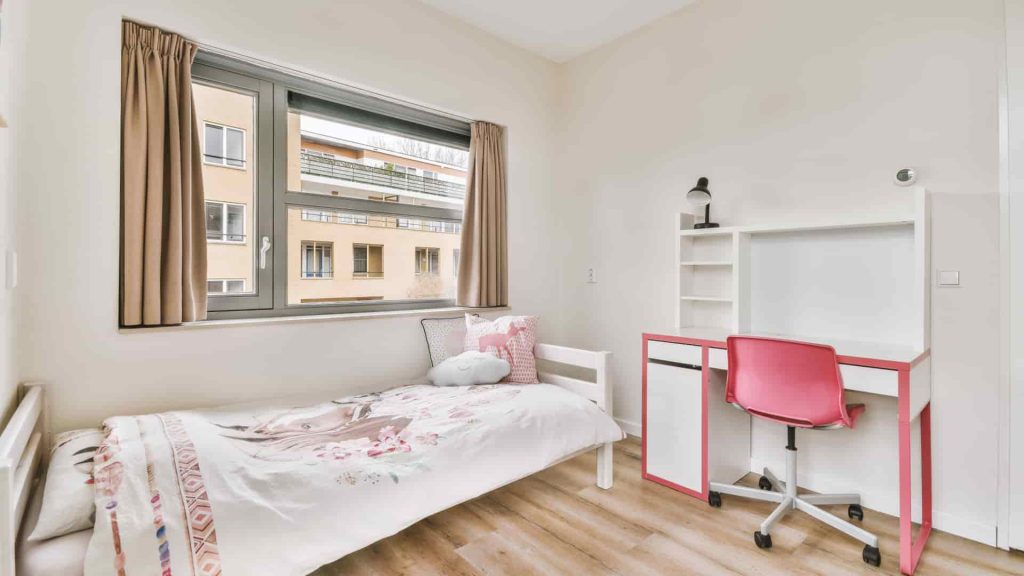
Finding the perfect student housing in Germany can be a thrilling chapter in your academic life. But where do you start?
Germany is, without doubt, an extremely student-friendly country. It provides different types of student accommodation options from cozy dorms managed by Studentenwerk to private apartments that offer a taste of independence, and the communal spirit of shared flats (WGs).
Essentially, the choices are as diverse as they are appealing.
It is probably wrong to pose the following question: Have you ever wondered what it’s like to live in a German dormitory, or how to snag that ideal apartment in a bustling city?
Surely, you have. But, it’s a start at least.
Perhaps you’re curious about the communal living culture in a WG.
I attempt to delve into the various facets of student housing in Germany, providing insights into costs, the application hustle, legalities, and the unique cultural quirks of German student life.
When it comes to navigating the intricacies of student accommodation, it really does not matter whether you’re an international student or a local. Everyone needs to understand the housing landscape for a smooth transition to student life in Germany.
An Overview of Student Accommodation Options in Germany
In Germany, student accommodation may take on several forms. This has been an age-old practice and it is set in place to accommodate all kinds of students. Regardless of your age, marital or relationship status, financial holding, education or color, you are sure to find a comfortable and safe adobe for yourself.
They are meant to fit different bars of preferences, requirements and budgets. However, there are three categories of student accommodation that needs to be highlighted here.
Make sure to read: Learning to Love German Winters: 5 Places to Visit in the Winter
Dormitories or Studentenwerke

Managed by regional student service organizations, these residences provide a streamlined application process, typically through the university or directly via the Studentenwerk’s website. Dorms are prized for their affordability and the instant community they offer, with facilities ranging from shared kitchens and bathrooms to fully equipped single or double rooms.
They stand as a beacon of convenience and camaraderie, particularly appealing to those new to Germany, who are finding it rather daunting to go out and make friends. Dorm rooms are perfect communal-cum-living spaces where students can find company while also fulfilling their living requirements.
| Aspect | Description |
| Application Process | Varies slightly between Studentenwerke, but generally involves online application through their website. May require documents like proof of enrollment, transcripts, and income statements. |
| Types of Rooms | Single rooms, shared rooms (double or more occupants), apartments with shared kitchens and bathrooms. Some offer wheelchair-accessible rooms. |
| Typical Facilities | Furnished rooms with basic furniture (bed, desk, chair), shared kitchens with common areas, laundry facilities, internet access, sometimes shared bathrooms. Some offer additional amenities like gyms, game rooms, music rooms, courtyards. |
| Affordability | Rents generally lower than private market due to government subsidies. Typically range from €200-400 per month depending on location, room type, and amenities. |
Private Apartments

Renting a private apartment affords a greater degree of independence and privacy. This option allows students to dive deeper into local life, though it comes with its challenges, such as navigating the competitive rental market and understanding complex rental agreements.
Costs can vary significantly based on location, size, and amenities, often necessitating a careful search and swift decision-making to secure a desirable spot. Familiarizing oneself with the rental contract’s terms, rights, and obligations is crucial to avoid potential misunderstandings with landlords.
| Aspect | Description |
| Average Costs | Varies greatly depending on location, size, and amenities. Expect €500-1500+ per month, with major cities and desirable areas being more expensive. |
| Challenges in Finding Accommodation | Competitive market, especially in popular cities. High demand, limited supply, and bureaucratic procedures can make finding suitable housing challenging. |
| Rental Contracts | Carefully review the contract, clarify any doubts before signing. Understand terms like Kaltmiete (base rent), Nebenkosten (utilities), Kaution (deposit), minimum rental period, and termination clauses. |
| Dealing with Landlords | Communicate clearly and promptly, understand your rights and responsibilities as a tenant (Mietrecht), document everything in writing, seek help from Mieterverein (tenants’ association) if needed. |
Also read: How to Open Your First German Bank Account?
Shared Flats or Wohngemeinschaften (WG)

Shared flats offer a middle ground, blending the social atmosphere of dorms with the autonomy of private apartments. In a WG, residents share common spaces like the kitchen and living room, while maintaining private bedrooms.
This setup not only facilitates a vibrant social life but also helps distribute living expenses, making it an economically savvy option. The shared responsibility and communal living foster a sense of belonging and mutual support among flatmates.
Urban Ground offers several fully equipped shared apartments, rooms and private apartments to students and expats who are looking to start a new life in Germany. Make sure to check out their catalogue.
| Aspect | Description |
| Average Cost | Varies depending on location, size, amenities, and number of flatmates. Generally €200-400 per person, with major cities and desirable areas being more expensive. |
| Application Process | Often involves contacting the current flatmates directly through online platforms (WG-Gesucht, Facebook groups) or contacting the landlord. May involve interviews, references, and application fees. |
| Facilities | Shared kitchen, bathroom, and living areas. Some offer additional amenities like washing machines, balconies, gardens, or internet access. |
| Types of Rooms | Single rooms, shared rooms (double or more occupants). Size and furniture can vary depending on the flat. |
Application Process for Applying for Student Accommodation and Availability
Securing a spot in a student dormitory in Germany involves navigating through a structured yet competitive process. The journey begins with verifying your eligibility, which typically means being an enrolled student at a university served by the respective Studentenwerk.
Eligibility: Confirm enrollment as a student at a university within the specific Studentenwerk’s jurisdiction. Check for additional criteria like nationality or income limits.
Finding the Right Dormitory:
- Research available dormitories on the Studentenwerk website, noting their locations, facilities, costs, and deadlines.
- Decide on your room preference (single or shared) based on privacy, budget, and social interaction.
Application:
- Use the online platform provided by the Studentenwerk to register and complete the application form, including personal details and enrollment confirmation.
- Prepare necessary documents such as your passport, proof of enrollment, transcripts, and possibly health insurance proof.
- Submit your application before the deadline to avoid missing out due to high demand.
Selection and Waiting: Applications are evaluated based on criteria like academic performance and application timing. Be prepared for waiting lists and consider alternative housing options.
Offer and Confirmation: Review and accept your room offer promptly, and pay any required deposits or fees to confirm your reservation.
We think you’ll love this: 7 Best Day Trips from Berlin for History Buffs

Why is there a Sudden Rise in Demand for Student Accommodation in Germany?
The demand for student housing often exceeds supply, leading to competitive application processes, especially for dormitories. To improve your chances of securing preferred accommodation, apply as early as possible and consider multiple options simultaneously.
Being flexible with your housing preferences, such as location and room type, can also increase your chances. For immediate housing needs, explore short-term options like temporary rentals or youth hostels while waiting for a more permanent solution.
Networking with current students and joining local student housing groups on social media can provide valuable tips and leads on available accommodations.
Comparison of the Student Accommodation Costs in Germany
| Housing Option | Typical Monthly Rent | Average Deposit | Additional Costs |
| Student Dorms (Studenwerk) | €200-400 | 2-3 months’ rent | Utilities, internet, meals (optional) |
| Private Apartments | €500-1500+ | 2-3 months’ rent | Utilities, internet, furniture, insurance |
| Shared Flats (WGs) | €200-400 per person | 1-3 months’ rent | Utilities, internet, shared living expenses |
Don’t forget to read: How to Rent a Car in Germany?
Budgeting Tips for Student Accommodation in Germany:
- Utilities and Internet: Opt for housing with utilities included or negotiate shared utility bills in a WG to avoid unexpected costs. Consider low-cost internet plans or communal Wi-Fi in student residences.
- Furnishings: Save by choosing partially furnished options or acquiring second-hand furniture from previous tenants, flea markets, or online marketplaces.

- Groceries and Meals: Cook at home more often and buy groceries from discount supermarkets. Join or form meal-sharing groups with fellow students to divide costs.
- Transport: Take advantage of student discounts on public transport or consider biking, a common and economical mode of transport in many German cities.
- Entertainment and Leisure: Explore free or discounted cultural and recreational activities offered by universities and local communities to students.
Your recommended post for the week: A Peek into a Day in German Life
Finding Student Accommodation – A Home Away From Home
Securing the right student housing in Germany is a crucial step towards a successful and enjoyable academic experience. With options ranging from the communal atmosphere of dormitories and the shared experiences of WGs, to the independence of private apartments, there’s a fit for every preference and budget.

Understanding the application process, being aware of the costs involved, and adopting savvy budgeting strategies can significantly ease the transition into student life. While the demand for housing in popular cities can present challenges, early planning, flexibility, and resourcefulness are key to finding a place that feels like home.
Remember, your student housing choice is more than just a roof over your head; it’s the backdrop to the memorable experiences and lasting friendships you’ll make during your time in Germany.




